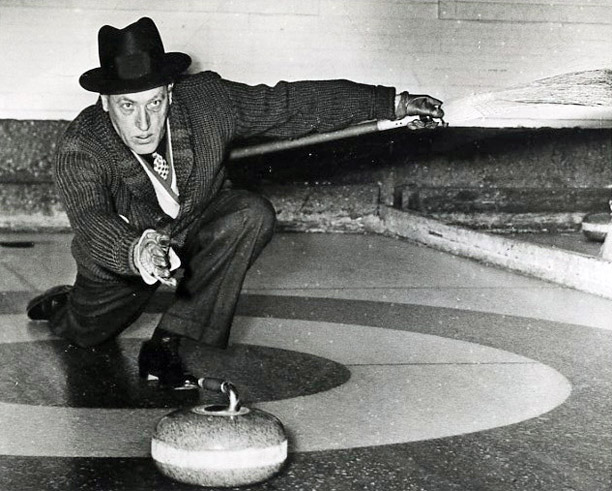Hall of Famer
Ken Watson
Inducted in 1969
Member Details
Career Highlights
32 major curling trophies
Manitoba Bonspiel Title
Canadian Brier Title
Six Manitoba Grand Aggregate Titles

Story
With 32 major curling trophies to his name, Ken Watson was one of Manitoba's premier curlers in the 1930s and '40s. Not only was he the first skip to claim three Brier victories over the course of his career, but he worked tirelessly to promote the game among Canadian youth, spawning a growing interest in the sport and ensuring a steady stream of curling enthusiasts for generations to come. Watson started curling at the age of 15, entered his first Manitoba bonspiel in 1923, and won his first major trophy in 1926. He skipped his rink to four Manitoba bonspiel titles and, in 1936, 1942, and 1949, led his team to victory in the Brier, emblematic of the Canadian curling championships. To add to his success, Watson won an impressive seven Manitoba Grand Aggregate tournaments, which included six victories between 1942 and 1947. With an almost scientific approach to his performance, Watson was able to maintain terrific concentration on the ice, even as tensions rose between shots. He was a great strategist as well as an innovator in the game. It was Watson, for instance, who developed the long sliding delivery, a move which was at first contested, but has since gained wide popularity. A high school teacher by profession, Watson popularized the sport among his students and initiated the first high school curling championships in 1940. He was also a key player in the establishment of a national curling school. Watson left teaching in 1942 to pursue a career in insurance, but he remained involved in junior curling, serving as chairman of the Manitoba Curling Association junior committee in 1942 and chairman of the Dominion Junior Curling Association Committee from 1949 to 1950. At the world-class level, Watson helped organize the Scotch Cup, a tournament that began between Canada and Scotland in 1959 but which has since developed into the multi-nation world curling championship series. After retiring from competition in 1951, Watson published four curling books as well as a weekly curling column, which appeared in the Toronto Telegram as well as numerous other newspapers. For his outstanding performance on the ice, Watson was inducted into the Canadian Curling Hall of Fame in 1973. For his significant contribution to the development of the sport, he received the Order of Canada in 1975.






